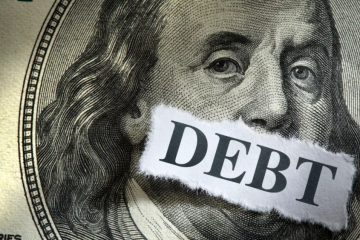Credit Cards Could Swipe Department Stores’ Profits

Department stores haven’t had an easy life lately, but store credit cards lightened the load. Now, that part of their business faces a new threat.
There are two developments worth watching: First is a proposed rule by the Consumer Financial Protection Bureau to cut the late fees that credit cards can charge consumers from as much as $41 per missed payment ($30 on the first missed payment) to $8. The agency is expected to issue a final ruling in the coming months, though legal challenges could end up impacting the timing and severity of the cuts. Second, delinquencies, which have already hit Macy’s, could soon impact other department stores.
Credit cards are surprisingly important to department stores. While they account for a small piece of their top lines, they boost profits. Credit income accounted for about 49% and 44% of Macy’s and Nordstrom’s operating income in 2022, according to estimates from BofA Global Research equity analyst Lorraine Hutchinson. At Kohl’s, credit income well exceeded operating income, implying that the retailer would have swung to an operating loss if it hadn’t been for the credit-card business.
And it has become more important. At Macy’s, for example, revenue excluding credit cards shrank 5.7% from 2016 to 2022, but credit-card income rose 53%. At least a part of that is due to cannibalization: Department stores often dangle alluring discounts to customers who sign onto their branded cards. That translates to gains on the credit revenue line and a hit to gross margins, notes Hutchinson.
Another surprising stat: Late fees are especially important for store-branded credit cards. They made up about a quarter of such card issuers’ total interest and consumer fees, according to a March 2022 report from CFPB. While department stores and retailers don’t disclose the breakdown of these revenue streams, BofA Global Research and Citi Research estimate that late fees represent between roughly 14% and 30% of their overall credit-card-portfolio revenue.
Based on those assumptions, BofA estimated that the CFPB’s late fee rule could reduce Kohl’s earnings per share by 29% to 63% this fiscal year, compared with a scenario where such a rule isn’t imposed, and Nordstrom’s by 11% to 23%. Macy’s earnings per share could take a 6% to 14% hit. There is at least a limit to the impact since department stores no longer own their credit-card receivables.
Retailers and credit-card issuers have said they have ways to offset the late-fee cut, but they aren’t so simple. Increasing interest rates they charge customers could help, but there will be a period when banks can’t increase rates on existing balances and must notify consumers that their rates will be rising on future purchases, according to a report from Citi Research equity analyst Paul Lejuez. Another option is to reduce charge-offs by becoming more selective in extending credit, but that would limit eligible consumers and hurt revenue.
Deteriorating consumer credit health could pour salt in the wound. Credit-card issuers across the board have been seeing delinquency rates rise after hitting a trough in 2021. Synchrony Financial, one of the largest private-label credit-card issuers, said the 30-plus day delinquency rate rose to 4.74% in the fourth quarter, exceeding the rate seen in the last three months of 2019.
In 2023, Macy’s was the only department store to flag big declines in its card business. Its credit-card income fell 41% in its fiscal second quarter of 2023 compared with a year earlier and then 31% in the third quarter as delinquency rates and bad-debt levels rose. This might portend problems for Kohl’s and Nordstrom. Macy’s takes on bad-debt reserves based on delinquency trends, which means it has a more forward-looking way of treating the amount that credit-card holders never end up paying (net charge-offs). Kohl’s and Nordstrom’s credit-card revenues reflect the actual charge-offs over the reporting period.
If anything, this year’s challenges are a good opportunity for investors to evaluate whether department stores’ relationship with credit cards has gone from healthy to toxic.










